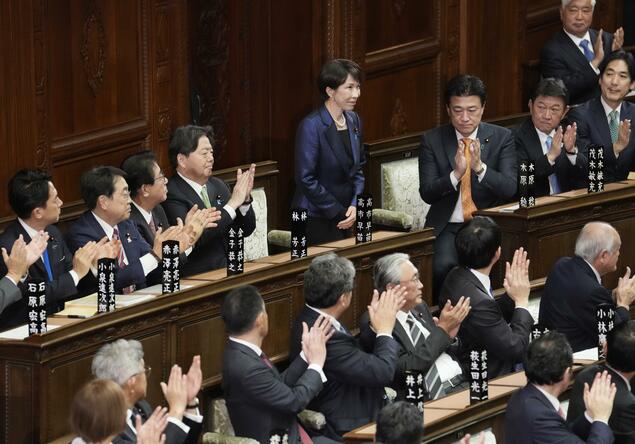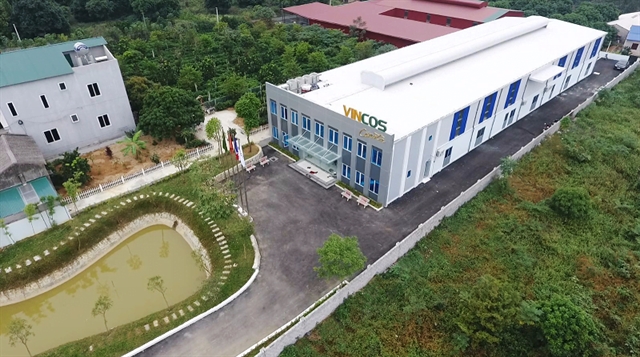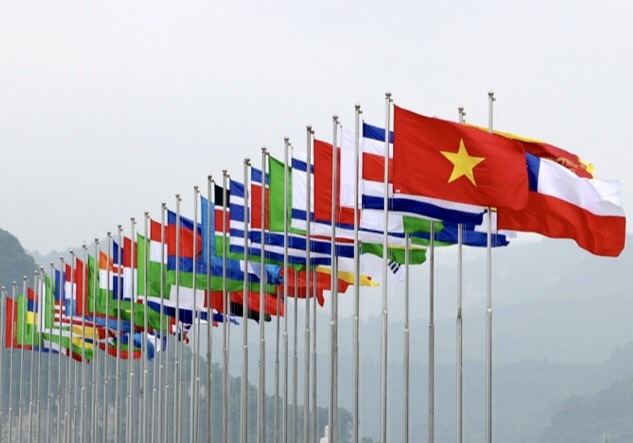 Politics & Law
Politics & Law
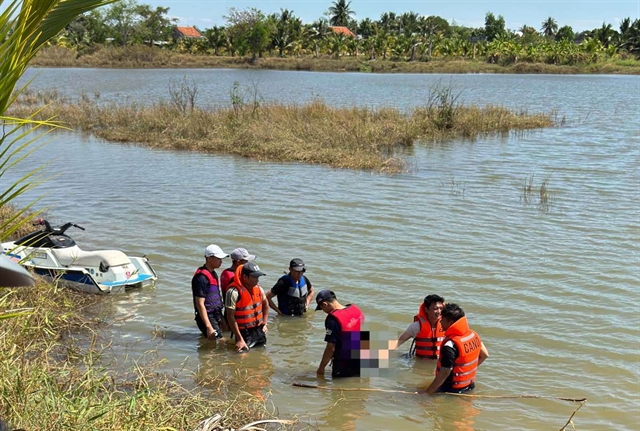
Lawmakers have urged the Government to encourage the public private partnership that allow more involvement of private sector into railway business.
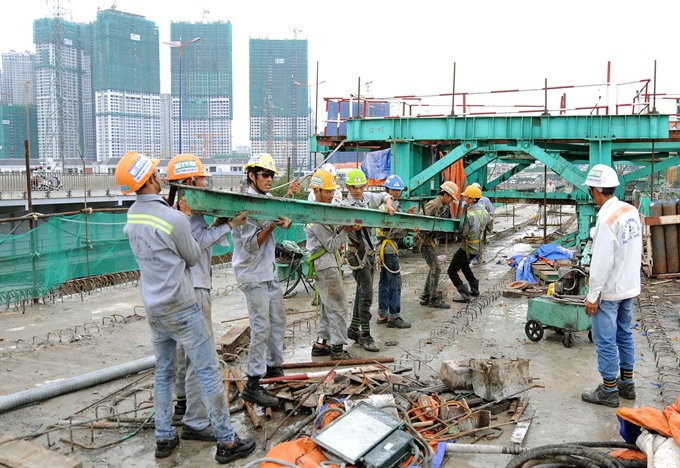 |
| Workers work on the final steps in the construction of an urban railway crossing the Sài Gòn River in HCM City. — VNA/VNS Photo An Hiếu |
HÀ NỘI — Lawmakers have urged the Government to encourage public private partnerships to draw private investment into the railway sector.
Discussing the draft revised Law on Railway at the ongoing third session of the 14th National Assembly (NA) yesterday, deputy Nguyễn Văn Thể from the Cửu Long (Mekong) Delta province of Sóc Trăng said that involving different business sectors into railway activities would attract investment from home and abroad to the railway system.
“Developing the railway system will help ease the pressure on roadway transport,” he said.
Thể also suggested building trade centres at stops and stations.
“The private sector should also be allowed to invest in this. The Government cannot cover both the construction of the railway system and businesses at stations,” he said.
Other deputies said that railways played an important role in the transport system in Việt Nam. However, investment in this field had been lacking, they said.
“Though the Government encourages domestic and foreign organisations and individuals to invest in railway infrastructure, there has been little investment,” said deputy Nguyễn Bắc Việt from the central province of Ninh Thuận, adding that over the past 10 years, little capital had been allocated for rail development and had mainly been for maintenance.
“The policy has not attracted investors,” he said.
Deputy Đặng Hoàng Tuấn from the southern province of Long An said that railway development should be detailed, with regulations on minimum investment in rail infrastructure, based on the reality of Việt Nam’s overall transport infrastructure system.
Other deputies, however, claimed a monopoly and incentives for the railway industry were creating inequality in the transport business that had not been solved in the draft revised law.
“The draft law still stipulates that the government has to subsidise railway activities,” deputy Trần Tất Thế from the northern province of Hà Nam said, pointing out that enterprises operating railway infrastructure were still allowed to approve lease prices without bidding and procurement of railway infrastructure under market mechanisms.
He added that one State-owned enterprise owns and operate all railway infrastructure in the country, Vietnam Railways.
“Other businesses wishing to get involved in rail transport must contract this enterprise to use state-owned railways and rail infrastructure. This had led to unfair competition, while discrimination between different economic components in the railway business does not attract non-State economic resources to invest,” he said.
Deputy Trần Văn Lâm from the northern province of Bắc Giang said that after more than 10 years of implementation of the Law on Railway, railways had failed to develop and lagged behind in terms of equipment and technology, with low service quality and a decreasing market share.
He also blamed the prolonged monopoly of State-owned enterprises as the cause for the situation.
Lâm said that the draft law aimed to eliminate the monopoly in the railway business, which is a drastic policy but compared to the previous draft, the current draft was a significant step back.
"Other businesses that want to participate in State-owned national rail transport cannot be assured of competing with the transportation business whose ’dad’ is managing the route they will be in,” he said.
Deputy Lưu Bình Nhưỡng from the southern province of Bến Tre suggested to add the regulation on the construction of broad-gauge railway throughout the country and increase the connection between the national railway system with airports and sea ports to create favourable conditions for transporting goods.
He also urged to have more regulations on the safety and security for railways with the absolute ban on crossings, which have reportedly caused lots of accidents to people.
Speaking at the end of the discussion session, Minister of Transport Trương Quang Nghĩa said that Việt Nam was one of the countries with a developed railway system a century ago. However, after 100 years, the role of the railway system had gradually "faded away," Nghĩa said, saying the reason was limited investment for the sector.
“In the 2011-15 period, rail investment accounted for only 3.18 per cent of the investment structure for transport. Meanwhile, road investment took up more than 88 per cent,” Nghĩa said.
"The railways are of little interest so it is more difficult to develop. In 2016, rail freight made up only 0.4 per cent of total freight transport. That is why transportation costs in our country are very high compared to the world," Nghĩa said.
The deputies are scheduled to vote on the revised Law on Railway on June 16.
In the afternoon, the deputies discussed in groups the amendments to the Law on Public Debt Management and the Law on Denunciation. — VNS

